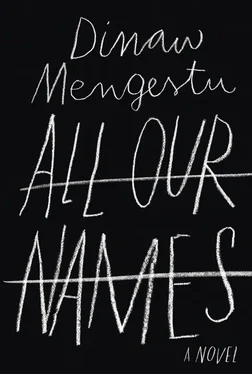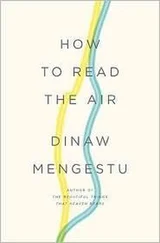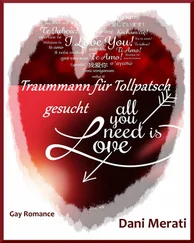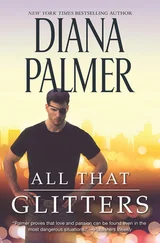I had kept in my pocket enough spare change to buy a paper on the day a story like that appeared, but as I stood among the crowd of ten to fifteen men, all craning their necks to see the headlines, I began to think that was exactly what someone was waiting for. I was the only obvious foreigner, and I could imagine how the men there might look at me if I were to buy that particular paper. I had been at the intersection dozens of times before, but only now did I notice the pair of traffic officers standing in the middle of the road; they were watching the traffic more than guiding it. On the other corner were two men in suits with sunglasses on, and I began to suspect they were always there, and not for pleasure, but because they had been assigned to watch from that post. Even the man selling the newspaper suddenly struck me as odd. There was nothing special about him — he was maybe a decade older than me, had his hair cut close, and was dressed in matching pants and shirt, either beige or blue. He had one of the best spots in the city to sell papers from, with crowds constant on all four corners and not one other vendor anywhere near him to compete against. I wasn’t convinced that selling newspapers was merely a cover, but once I saw the possibility that it was, I could no longer dismiss it outright.
I took the change out of my pocket and pointed to the paper that was officially published by the government, which included at the top of every issue a portrait of the president in full military dress. I tucked it under my arm and walked slowly toward a café on the other corner. I thought of taking a seat at one of the tables outside, but I felt that the men already sitting there were also watching me. I couldn’t tell, though, if it was me or the paper they were staring at, and so I abruptly turned and headed south, down a road that I had been on once before.
Several schools must have let out just then; the sidewalks and street were full of children in either blue-and-white or red-and-white uniforms. A remarkable sight, they blotted out everything that surrounded them as they moved back and forth, in circles, in swarms. I felt safe following them — not because I believed nothing bad could happen in their presence, but because I felt invisible in their midst. I can remember the dust rising from the sides of the road, which hadn’t been paved, and the sounds of hundreds of sandals clapping against heels.
At some point early in that walk, I stopped worrying about who might or might not have been watching me. I went back to taking my innocence for granted; the newspaper under my arm, which I had carefully folded to make sure its distinctive red-and-white banner was clearly visible, meant no more to me than the dust on my shoes; to be honest, I had forgotten why I had bought it.
Had I not been so enamored by the scene in front of me, I would have noticed the two men following me before they were in shouting range. I didn’t turn to face them until I heard them yell in English, “Stop,” over and over. I didn’t understand what they said next, except when they spat on the ground after saying the president’s name, or what their anger had to do with me, until they stepped closer and one grabbed the newspaper from under my arm and threw it to the ground. I had never been in that neighborhood before; I didn’t know its rules or recent history. Many young men from there had recently disappeared, and there was nothing but hatred for the government and anyone who favored it. The paper you read was more than enough to determine which side you fell on; in my case, I was never given the chance to explain why I was carrying it, and even if I had, who would have believed me.
My memory of what happened after the paper was taken has never returned; if parts ever did start to emerge, I would do whatever was necessary to keep them buried. There’s a coin-sized circle in the back of my head where no hair will ever grow again, along with three thin, distinct scar lines along the right side of my scalp. And though I don’t remember this, I was later told that at least an hour passed before anyone sought help for me, and so I also have, whether I want to or not, a clear image of all those children walking and laughing as they stepped over me on their way home.
When I regained consciousness two days later, I was in a hospital run by a Catholic charity, in a large white room with forty other bodies around me and the stench of ammonia and decay mixed together. I had never seen African nuns before, but there they were, all of them the same shade of black, in sparkling white dresses with blue veils covering their hair. None of them were in the room when I first woke up, and in my confusion I screamed, not out of fear or pain, but I think simply to hear my own voice and to know that I was alive.
Later that afternoon, Isaac came to see me. I was so relieved not to be alone that I didn’t question how he had known I was there. He handed me a black palm-sized notebook. “Something for you to write in until you can leave here,” he said.
He pulled a chair next to the bed, and finally took off his sunglasses. “So, my friend. Now you know what it feels like.”
I knew what he meant by that, but it wasn’t true, at least not yet. The men who beat me were driven as much by fear as hate. They had lashed out blindly and left me for dead. Isaac had yet to feel that distinct version of violence, and because I was certain that soon enough he would, and that odds were when he did he wouldn’t survive, I didn’t bother to point out the difference. He offered me his hand as he bent down to kiss my forehead — a gesture that was intended to say that there was more between us now than just friendship. I gripped his hand just as tightly, and even lifted my head to his lips to make sure that he understood that I felt exactly the same way.
It’s possible that if Isaac had never returned I might have gone on to live a perfectly reasonable, happy life. I would have spent my days with women like Rose, kind, decent old women who, though alone and poor at the end of their lives, were above any cheap, easy pity. Through them and maybe a few dozen others whose lives I managed to make less alone, at least briefly, I could say that I had found a purpose, until, eventually, one day, the tables were turned and it was my turn to play the role of the aged host for the young women assigned to look after me. Isaac came back exactly three weeks after he had left, and when he did, he shut the doors to that world behind him. I visited Rose two more times, and each time stayed less than an hour and was so occupied with my own thoughts that I barely heard a word she said. When I think of Isaac’s return now, I imagine myself sitting in a semi-barren living room with all the windows open, a faint breeze barely rocking the white curtains, when a sudden explosion shatters the windows and blows the curtains apart — my own private little blast, which I was too stupid not to be afraid of.
Isaac returned bearing gifts, not of apology or remorse but of America, which he said he had finally discovered, and was eager to tell me about. His first morning back, he took a bus to my office and left with the secretary a package that had my name on it. I opened it at my desk and found a box filled with cheap plastic souvenirs, each individually wrapped in a thin sheet of white paper. There was a palm-sized Statue of Liberty and Empire State Building, along with even smaller replicas of the White House, Lincoln Memorial, and Golden Gate Bridge, and a typed letter at the bottom that I memorized.
Dear Helen
I had to go away. Here are some of the places that I hope we can go to someday.
Warm Regards
Isaac
I lined the monuments along the edge of my desk. I wasn’t sure how to read them. The letter was curt — the gesture suspiciously grand. The farthest I had ever traveled was to St. Louis with my parents.
Читать дальше












